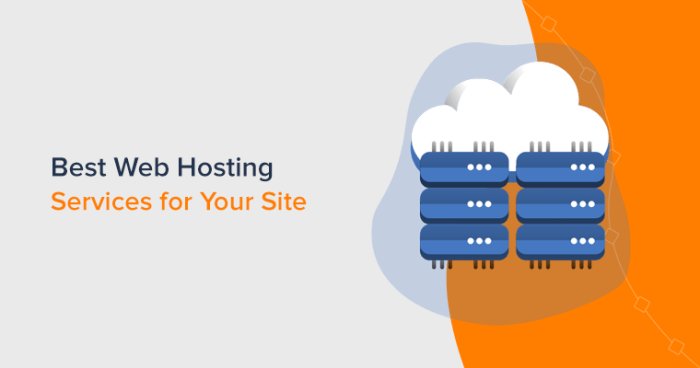Finding the right web hosting for your small business is crucial for success. “Best Web Hosting for Small Businesses: Affordable and Reliable Options” is more than just a catchy title; it’s a reality you can achieve. The right hosting plan can make the difference between a website that thrives and one that struggles to be seen. This guide will explore the key features to consider, affordable options available, and tips for optimizing your hosting performance, ensuring your online presence is strong, reliable, and cost-effective.
A reliable web host ensures your website is always accessible to potential customers, while an affordable plan helps you stay within budget. Poorly chosen hosting can lead to slow loading times, frequent downtime, and security vulnerabilities, ultimately damaging your brand reputation and hindering your business growth. This guide will empower you to make informed decisions and choose the best hosting solution for your small business.
The Importance of Choosing the Right Web Hosting for Small Businesses
In the digital age, a strong online presence is essential for the success of any small business. A website serves as a virtual storefront, allowing businesses to connect with customers, showcase products and services, and build brand recognition. However, a website is only as effective as the web hosting platform that powers it. Choosing the right web hosting provider is crucial for ensuring a seamless online experience for customers and a positive brand reputation.Reliable and affordable web hosting plays a vital role in supporting a small business’s online success.
It ensures that the website loads quickly, functions smoothly, and remains accessible to customers at all times. This positive user experience fosters trust and encourages repeat visits, contributing to a strong brand image and customer loyalty.
Impact of Poor Web Hosting Choices on Small Businesses
Choosing a poorly suited web hosting plan can have detrimental effects on a small business’s online presence and ultimately its success. Slow loading times, frequent downtime, and limited storage space can significantly impact customer satisfaction and lead to lost revenue.
- Slow Loading Times: Customers have limited patience when browsing the internet. A slow-loading website can lead to frustration and abandonment, resulting in lost sales and diminished brand perception. Studies have shown that even a one-second delay in page load time can result in a 7% decrease in conversions. For example, a small e-commerce business might experience a significant drop in online sales if its website takes an extended time to load, deterring potential customers from completing their purchases.
- Frequent Downtime: A website that is frequently unavailable due to server issues can damage a small business’s credibility and trustworthiness. Customers may perceive the business as unreliable or unprofessional, leading to a loss of confidence and potential customers. For instance, a service-based business that relies on online booking appointments might experience a significant decrease in bookings if its website is frequently unavailable, as customers may be unable to schedule appointments or access important information.
- Limited Storage Space: Insufficient storage space can restrict a small business’s ability to expand its online presence. It can limit the amount of content, images, and videos that can be uploaded, hindering the website’s functionality and overall appeal. A small business that relies on high-quality images or videos to showcase its products or services might find it challenging to effectively communicate its offerings if limited storage space restricts the upload of larger files.
Key Features to Consider for Small Business Web Hosting

Choosing the right web hosting plan is crucial for your small business’s online presence. You need a plan that offers the necessary features to support your website’s performance, security, and growth. This section will explore some key features you should consider when selecting a web hosting plan for your small business.
Storage Space
Storage space refers to the amount of disk space allocated to your website on the hosting server. It’s essential to consider the amount of storage you’ll need based on your website’s content, such as images, videos, and documents. A website with a large amount of multimedia content will require more storage than a website with primarily text-based content.
For instance, if you run an e-commerce store with many product images and videos, you’ll need a hosting plan with ample storage space.
Bandwidth, Best Web Hosting for Small Businesses: Affordable and Reliable Options
Bandwidth represents the amount of data that can be transferred between your website and visitors’ browsers within a specific time. High bandwidth is crucial for websites that receive heavy traffic or have large files, such as videos or high-resolution images.
A website with limited bandwidth might experience slow loading times or even downtime during peak traffic hours, negatively impacting user experience and potentially driving visitors away.
Security
Website security is paramount, especially for businesses that handle sensitive customer information. Look for hosting providers that offer features like SSL certificates, firewalls, and malware scanning to protect your website from cyber threats.
An SSL certificate encrypts data transmitted between your website and visitors’ browsers, ensuring secure communication and protecting sensitive information like credit card details.
Uptime Guarantees
Uptime refers to the percentage of time your website is accessible to visitors. A reliable hosting provider will offer a high uptime guarantee, usually above 99.9%, ensuring your website is available to your customers.
Downtime can be detrimental to your business, as it can lead to lost sales, customer dissatisfaction, and damage to your brand reputation.
Scalability
Scalability refers to the ability to upgrade your hosting plan as your business grows and your website’s traffic increases. Look for a hosting provider that offers flexible plans and allows you to easily scale up your resources as needed.
For example, if your website experiences a sudden surge in traffic during a promotional campaign, you should be able to quickly upgrade your hosting plan to accommodate the increased demand.
Customer Support
Reliable customer support is essential for any web hosting provider. Look for a provider that offers 24/7 support via phone, email, or live chat, ensuring you can get assistance whenever you need it.
Having access to knowledgeable and responsive support staff can be invaluable, especially when troubleshooting technical issues or seeking guidance on managing your website.
Resources and Documentation
Many hosting providers offer valuable resources and documentation to help you manage your website effectively. Look for providers that offer tutorials, FAQs, and knowledge bases that provide guidance on website setup, maintenance, and troubleshooting.
Having access to comprehensive resources can empower you to manage your website independently and efficiently, saving you time and effort in the long run.
Affordable Web Hosting Options for Small Businesses
Finding the right web hosting provider can be a daunting task for small businesses, especially when budget constraints are a concern. Fortunately, several affordable web hosting options cater specifically to the needs of small businesses without compromising reliability or performance. These options provide a balance of essential features and cost-effectiveness, making them ideal for startups, entrepreneurs, and small enterprises.
Affordable Web Hosting Providers Comparison
To help you navigate the diverse landscape of affordable web hosting providers, we’ve compiled a table comparing popular options based on their key features, pricing, and customer reviews. This table provides a comprehensive overview, enabling you to make an informed decision based on your specific requirements.
| Provider Name | Monthly Cost | Storage Space | Bandwidth | Security Features | Customer Support |
|---|---|---|---|---|---|
| HostGator | $2.75 | Unlimited | Unlimited | SSL Certificate, Site Backup | 24/7 Live Chat, Phone, Email |
| Bluehost | $2.95 | 50 GB | Unlimited | SSL Certificate, Site Backup | 24/7 Live Chat, Phone, Email |
| GoDaddy | $5.99 | 100 GB | Unlimited | SSL Certificate, Site Backup, Website Security | 24/7 Phone, Email |
| DreamHost | $2.59 | Unlimited | Unlimited | SSL Certificate, Site Backup, Spam Filtering | 24/7 Live Chat, Email |
Factors to Consider When Choosing a Web Hosting Provider

Choosing the right web hosting provider is crucial for the success of any small business. It directly impacts your website’s performance, reliability, and security. A well-chosen hosting provider can ensure your website runs smoothly, loads quickly, and is always available to your customers.
Reputation, Reliability, and Customer Satisfaction
Before committing to a hosting provider, it’s essential to thoroughly research their reputation, reliability, and customer satisfaction ratings.
- Look for reviews from other businesses on websites like Trustpilot, G2 Crowd, and SiteJabber. These platforms provide valuable insights into a provider’s performance and customer experience.
- Check the provider’s uptime history. A reliable provider will have a high uptime percentage, meaning their servers are available to serve your website consistently. Look for providers with an uptime of 99.9% or higher.
- Evaluate the provider’s customer support. Responsive and helpful customer support is crucial for resolving any issues that may arise. Consider the availability of different support channels, such as phone, email, and live chat, and the response times.
Website Performance, Uptime, and Security
The performance of your website directly impacts user experience. A slow-loading website can lead to higher bounce rates and lost customers.
- Choose a hosting provider with a strong track record of delivering fast website loading times. This can be achieved through a combination of factors, including server hardware, network infrastructure, and software optimization.
- Ensure the provider offers robust security measures to protect your website and customer data. Look for features such as firewalls, malware scanning, and regular security updates.
- Assess the provider’s uptime history. A reliable provider will have a high uptime percentage, meaning their servers are available to serve your website consistently. Look for providers with an uptime of 99.9% or higher.
Matching Your Needs and Budget
Choosing a web hosting provider that aligns with your specific business needs and budget is crucial.
- Consider the amount of storage space and bandwidth you require. This will depend on the size of your website, the amount of content you plan to host, and the expected traffic volume.
- Evaluate the features offered by different providers. Some providers offer specialized features, such as e-commerce integration, content management systems (CMS), and website building tools.
- Compare pricing plans and ensure they are transparent and easy to understand. Look for providers that offer flexible pricing options to suit your budget.
Tips for Optimizing Web Hosting Performance

Optimizing web hosting performance is crucial for small businesses as it directly impacts user experience, website speed, and overall business success. A fast and reliable website can attract more customers, improve conversion rates, and enhance brand reputation. Here are some practical tips to help you optimize your web hosting performance:
Optimizing Website Loading Speed
Website loading speed is a key factor in user experience. Slow loading times can lead to high bounce rates, decreased engagement, and ultimately, lost revenue. Here are some strategies to improve your website’s loading speed:
- Optimize Images: Images are often the largest files on a website, significantly impacting loading times. Compress images without compromising quality using tools like TinyPNG or ImageOptim. Use formats like WebP, which offer better compression ratios than JPEGs.
- Minify Code: Minifying HTML, CSS, and JavaScript code removes unnecessary characters and spaces, reducing file sizes and improving loading times. Use online tools like HTML Minifier or CSS Minifier, or integrate minification into your development workflow.
- Enable Caching: Caching stores copies of frequently accessed website content on the server, reducing the need to process requests every time. Enable browser caching and server-side caching to speed up page loads for returning visitors.
- Use a Content Delivery Network (CDN): A CDN distributes website content across multiple servers globally, delivering content from the server closest to the user. This significantly reduces latency and improves loading times for users worldwide. Popular CDN providers include Cloudflare, Amazon CloudFront, and Fastly.
Minimizing Website Downtime
Website downtime can be detrimental to a small business, leading to lost sales, damaged reputation, and frustrated customers. Here are some strategies to minimize downtime:
- Choose a Reliable Hosting Provider: Select a hosting provider with a proven track record of high uptime and excellent customer support. Look for providers with a 99.9% uptime guarantee and a robust infrastructure.
- Regularly Monitor Website Performance: Use website monitoring tools like UptimeRobot or Pingdom to track website uptime and performance. These tools will alert you to any issues, allowing you to address them promptly.
- Implement Redundancy: Utilize redundant servers, databases, and network connections to ensure website availability even if one component fails. This ensures business continuity and minimizes downtime.
- Regularly Back Up Your Website: Regular backups are crucial for data recovery in case of hardware failure, software errors, or cyberattacks. Consider using automated backup solutions or scheduling manual backups. Store backups off-site to protect them from local disasters.
Importance of Regular Website Maintenance
Regular website maintenance is essential for optimal performance, security, and stability. It involves tasks like updating software, fixing security vulnerabilities, and optimizing website content. Here’s why it’s crucial:
- Security Updates: Regularly updating website software, including WordPress plugins and themes, is vital to patch security vulnerabilities and prevent cyberattacks. Outdated software can be exploited by hackers, leading to data breaches, malware infections, and website downtime.
- Performance Optimization: Website maintenance includes tasks like optimizing images, minifying code, and clearing website cache to improve website speed and performance.
- Data Backup: Regular backups are essential for data recovery in case of accidents, hardware failures, or cyberattacks. Backups ensure you can restore your website to a previous state if data is lost.
Additional Considerations for Small Business Web Hosting: Best Web Hosting For Small Businesses: Affordable And Reliable Options
Choosing the right web hosting plan is crucial for a small business’s online success. While affordability and reliability are essential, several other factors should be considered to ensure optimal performance and scalability.
Types of Hosting
The type of hosting you choose will significantly impact your website’s performance, security, and cost. Here are the advantages and disadvantages of the most common types:
- Shared Hosting: This is the most affordable option, where multiple websites share the same server resources. It is suitable for low-traffic websites with basic requirements.
- Advantages: Cost-effective, easy to set up.
- Disadvantages: Limited resources, potential performance issues if other websites on the server experience high traffic, security risks if other websites are compromised.
- VPS Hosting: This offers more resources and control than shared hosting, as you get a virtualized portion of a server. It is suitable for websites with moderate traffic and specific performance needs.
- Advantages: More resources, better performance, greater security.
- Disadvantages: More expensive than shared hosting, requires some technical expertise to manage.
- Dedicated Hosting: This provides the highest level of resources and control, as you have an entire server dedicated to your website. It is suitable for high-traffic websites with demanding performance requirements.
- Advantages: Maximum resources, optimal performance, enhanced security.
- Disadvantages: Most expensive option, requires significant technical expertise to manage.
Website Traffic Volume and Growth
It is essential to consider your current and anticipated website traffic volume when choosing a hosting plan. A hosting plan that is too small for your traffic needs can lead to slow loading times, server errors, and even downtime.
- Estimate your current traffic: Use tools like Google Analytics to track your website’s current traffic levels. Consider factors such as the number of visitors, page views, and bandwidth usage.
- Anticipate future growth: Consider your business’s growth plans and how they might affect your website’s traffic. Choose a hosting plan that can accommodate future growth, avoiding the need for frequent upgrades.
Website Security
Protecting your website from cyber threats is crucial for safeguarding your data, maintaining customer trust, and avoiding legal issues.
- Use strong passwords: Use complex passwords for your website logins and administrative accounts. Avoid using common passwords or personal information.
- Install security plugins: Use security plugins to protect your website from malware, hacking attempts, and other threats.
- Regularly update software: Keep your website’s software, including WordPress, plugins, and themes, updated to patch security vulnerabilities.
- Implement SSL certificates: Use SSL certificates to encrypt data transmitted between your website and visitors, ensuring secure communication. Look for hosting providers that offer free SSL certificates.
- Back up your website: Regularly back up your website’s data to protect against data loss due to accidents, attacks, or technical issues.
Choosing the right web hosting for your small business is an investment in your future. By carefully considering your needs, researching reputable providers, and implementing optimization strategies, you can ensure a reliable, secure, and cost-effective online presence that drives your business forward. Don’t let your website be a liability; make it an asset that helps you connect with customers, build trust, and achieve your business goals.
Common Queries
What are the most common types of web hosting?
The most common types of web hosting include shared hosting, VPS hosting, and dedicated hosting. Each type offers different levels of resources and control, with shared hosting being the most affordable and dedicated hosting offering the most power and flexibility.
How much storage space do I need for my small business website?
The amount of storage space you need depends on the size of your website, the number of images and videos you use, and the amount of data you store. Start with a reasonable amount of storage and consider upgrading as your website grows.
What is bandwidth and how much do I need?
Bandwidth refers to the amount of data that can be transferred to and from your website each month. The amount of bandwidth you need depends on your website traffic volume and the size of the files you host. Choose a plan with enough bandwidth to handle your expected traffic.
What are some tips for improving my website’s loading speed?
To improve your website’s loading speed, optimize images, minimize HTTP requests, use a content delivery network (CDN), and ensure your code is efficient. A faster website improves user experience and boosts your ranking.